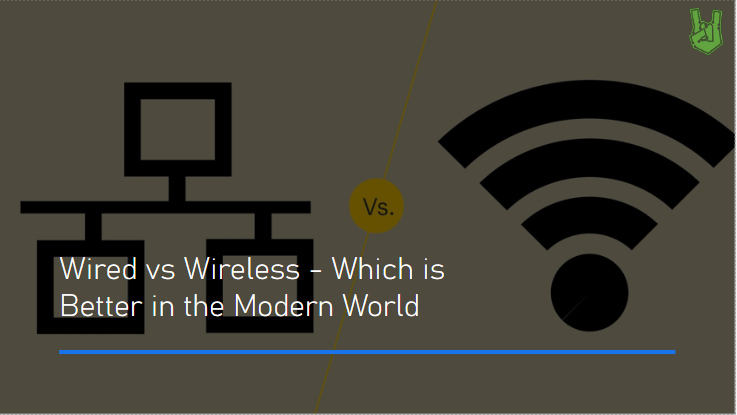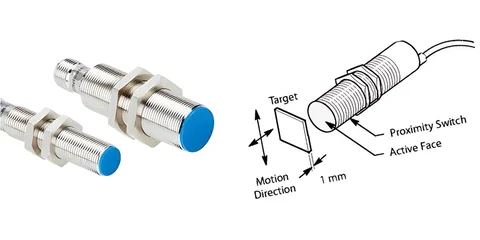Wired vs Wireless – Which is Better in the Modern World – With regards to picking between wired and wireless networking systems, there’s no right or wrong. Everything relies upon what your business needs are! Even though a boundless wireless network gives everybody another period of portability, it might be the most ideal decision for your business. Likewise, it’s not shrewd to expect that wired organizations are no doubt the most reasonable choice, no matter what your business needs.
The truth of the matter is, that both wired and wireless networks accompany their arrangement of benefits and impediments. If you are an entrepreneur, office overseer, or an IT supervisor who’s contemplating whether it’s ideal to move to a wireless network or to depend on a wired framework, Circuitrocks presents to you the two sides of the coin in this article – so you can settle on the best decision, and guarantee your IT procedure is going in the correct bearing.
Wired vs Wireless Networks: Advantages & Disadvantages

Advantages of Wired Networks
Dependability and Stability
Wired networks can offer unparalleled reliability when properly set up and used. You can have access to a dependable network as soon as the hubs, switches, and cables are installed. Wired associations don’t get affected by other network associations nearby or get stalled by availability issues as much as their wireless partners. For this reason, you will find that wired systems administration-based foundations are for the most part more steady.
Higher Connectivity and Faster Speeds
Wired networks convey a lot quicker speeds than wireless networks. The speeds have continued to improve since the utilization of Gigabit switches turned into a typical practice. Likewise, a wired organization has a restricted arrangement of clients interfacing with it whenever, so it’s seldom stalled by startling traffic – conveying almost steady high rates consistently. Aside from this, since a different ethernet link is utilized to interface every one of the gadgets straightforwardly to the network, clients can’t run into normal network issues (like dead spots), when associated with a wired network.
Better Security
When the firewalls and other fundamental security applications are designed for the network, a wired network is very much shielded from undesirable and unapproved access. Such an association can give your office more than adequate insurance for day-to-day business tasks, as long as the organization is being observed for any profoundly dubious action.
Accessibility
Wired networks are not visible to gadgets in different networks. This implies it’s almost beyond the realm of possibilities for clients outside the organization. To attempt and straightforwardly associate with the organization. Simultaneously, any gadget that can get to the wired network can unreservedly communicate with different gadgets in the network. This indicates that network administrators can control a significant amount of user access with relative ease.
Disadvantages of Wired Networks
Inconvenience as a result of Limited Mobility
Wired networks are truly rigid about versatility. To have the option to get to a wired network in an alternate area, there could be no other choice. Except to run additional links and introduce switches in that area. This might constantly be badly designed, contingent upon how much versatility your business or staff requests.
May Call for Greater Investment to Install
To interface every single gadget straightforwardly to the network, the establishment of the switches, routers, and centers can be an extensive and complex interaction. The establishment of a wired network may likewise take more time. Since additional parts might be required, contingent upon the size of your framework and different necessities.
Bigger Frameworks Require More Support
If you are setting up a little wired network, it could conceivably require a server. Nonetheless, when you start developing the network or begin adding more gadgets to the network. It’s fundamental to introduce a server, to deal with the necessary transmission capacity and network load. In such a circumstance, the support expenses could increase. Likewise, you may have to employ staff to regulate the support, if you want to set up various servers.
Slight Inconvenience Due to Too Many Cables
Using a wired network would necessitate managing numerous cables, which would not only be unsightly but also inconvenient. The office staff or cleaning crews might also disconnect the Ethernet cables by accident. Be that as it may, this hindrance may not irritate you if the security, dependability, and unwavering quality of your network associations are to a greater extent fundamentally important for your business.
Benefits of Using Wireless Networks
High Portability
At the point when you set up a wireless network, every one of your representatives can get to the network from any place in the workplace. Along these lines, they can carry workstations and different gadgets into the gathering rooms. Also, keep on getting to or downloading the significant records and reference reports for conversations. Without depending on a bunch of links to remain on the web. Although it may not seem like much, it may increase the productivity of your teams, particularly during meetings.
Lower Cost of Set-Up
Setting up a wireless network ordinarily expects fewer switches, routers, Ethernet links, and other equipment. This is when contrasted with introducing wired networks. To this end, the expense of executing it is moderate. By and large – except if your network arrangement requires extra gear, like a business-grade switch or remote repeaters.
Implement the BYOD policy simply.
It’s becoming typical for working environments to carry out a BYOD (Bring Your Own Device) strategy. When compared to a wired network, implementing such a policy is much simpler on a wireless network.
Makes Your Office Look Perfect and Coordinated
Wireless Networks make your work environment look neater since there are fewer links to stress over. Again this is not a joking matter, however worth considering, if you are concerned about making your office space look more coordinated and mess-free.
Simpler to introduce and Keep up with
Because it requires significantly less equipment to set up, a wireless network can be installed much more quickly and with less difficulty overall. Furthermore, you don’t have to invest energy in introducing incalculable links and interfacing every gadget to your organization independently. In addition, maintenance is simpler because the majority of the work is performed using software rather than hardware.
Disadvantages of Wireless Network
Connectivity May Suffer Periodically
The chance of impedance or checks because of other wireless gadgets in the area is higher. This can think twice about the presentation as well as the nature of your association. Clients may likewise run into dead spots or regions that have a terrible association, an issue that is every so often present in a wireless network region, because of items or walls that could impede the association. Thus, if your staff needs to work intimately with different groups or change in the area, for instance, the strength of the sign may a great deal and cause bother.
Security Can Be a Worry
By and large, wireless networks are a piece less secure than wired networks. The primary justification for this is the correspondence flags that get communicated through the air and are more straightforward to capture by troublemakers. You would require legitimate encryption innovation (WEP, WPA2), firewalls, and a few other safety efforts set up to deliver it ok for business use.
Slightly Lower and Unreliable Data Transfer Speed
The speed of wired networks is typically superior to that of wireless networks. Nonetheless, since the information transmission speed is essentially reliant upon your ongoing setup’s greatest speed capacity, you can constantly develop it further by utilizing a mixture arrangement (utilizing both wired and wireless networks together).
Wired versus Wireless Network: Which is best for Your Business?
Figuring out which choice is best for your business would incredibly rely upon your one-of-a-kind prerequisites, the idea of delicate data your organization handles consistently, and a few administrative limitations well defined for your field of work. A few organizations might like to decide on a cross-breed approach, in which they essentially keep a wired network, while likewise involving a wireless network for offering portability to a restricted client fragment.
Final Thoughts
We believe getting network installation right the first time is extremely essential. To keep away from problems later on, as your business develops. In this way, on the off chance that you don’t know the most reasonable choice for your business, or on the other hand assuming it’s muddled where to begin, reach out to prepared IT advisors who can direct you in the correct heading.




